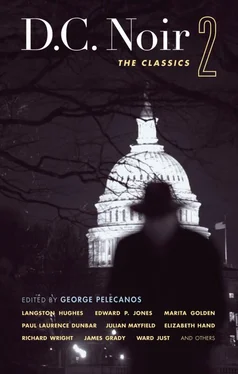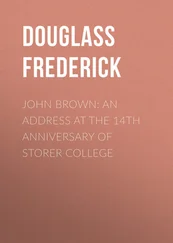She shouted through the bullhorn. The sound bounced off of the buildings surrounding the campus green: “You call this education?! Think about it. What are these bourgeois Toms preparing us for? I’ll tell you … Have any of you heard of the Congo, or Vietnam …?” She paused, waiting for an answer. “What about imperialism?”
“Tell it like it is, sister!” a male voice boomed out.
“Brainwash! Make you docile, afraid, and white-minded like them. We have to shake up this university. Find out which members of the board are investing in South Africa. We got to expose the running-dog lackeys in the political science department. The revolution must begin here because this is where we are.”
The crowd cheered her wildly.
“This is nothing but a nigger factory. Look around you. The world is changing. The dark world of Africa, Asia, and Latin America is coming into its own. Students all over the world are making the revolution … And what are we doing? Joining fraternities and sororities …” She seemed to look directly at me. I looked around somewhat self-consciously; there was no one there from either a fraternity or sorority. I shuddered a little, and for some reason I thought of the dream with my ghostly twin at the crossroads. The brisk evening air made me shudder again.
The moon seemed to rise over Douglass Hall now, casting a cool blue light over the tall oak tree under which she stood; that oak tree which was the traditional place for radical speeches on the state of everything from the politics of Reconstruction to the quality of the food in the cafeteria.
She wasn’t much bigger than me. Underneath the army jacket, her faded blue jeans were tight around her firm body. She was surely intelligent, but there was something of the tigeress about her. Even standing back on the edge of the crowd, I could feel her force. But I could never wear my hair like that. My mother would kill me. A disgrace to the race, she would say. And not proper by anyone’s standard of beauty.
“Let’s shut this mother down!” someone shouted. Then they started throwing bottles at the campus guards. Then two more campus patrol cars sped into the main gate. On one car there was a loud speaker: “This is an illegal assembly. All students are requested to disperse. Those failing to move on will be reported to the dean’s office.”
The guards began moving in on the students. But she continued to shout over the bullhorn as they dispersed. Who was she anyway? Her name came up all the time in our rap sessions. And I had seen her from a distance. She always looked determined, like she was mad in quest of something that was speeding ahead of her. One day I had seen her working in the reading room of the library. I watched her furiously taking notes as she went through several volumes of books piled high beside her on the long mahogany table. She was a top-notch student, but the men she went around with were always making trouble. They disrupted student council meetings with their crazy ideas. All that talk about blackness and black people. It was black this and black that . They should just be happy, I thought, happy to have the opportunity to get an education in this world. The crowd broke up. I went back to the practice room in the basement of Arts and Humanities.
It was dangerous to be out anyway. Maybe the District police would have to come on campus like they did last week when Stokely was here. They say that during the rioting and looting Stokely tried to get the crowd off the street. “Go home!” he said. “Go home! Get off the street … We’re not ready to fight!”
Ready for what? I thought … Did people like him really believe that we would ever be ready to fight these white people? It all made me feel very sick and strange. But I had cried for Dr. King. Yes, I had cried and that was that. There wasn’t any need to do anything else. I had done all I could; and hadn’t my roomie and I, with several other girls, wept for the man of peace, as we drank cognac and ginger ale the night I had my first puff of marijuana?
The Arts and Humanities building was semi-dark. But on the top floors light shined from the windows of the art studios. Several of the painters would linger working and talking long into the night. I wondered if painters were more gregarious than musicians. What about me? Was I just one of the herd around here? Was Jennie Forman right when she attacked the lifestyles of students like me and my sisters in the sorority? Who the hell does she think she is, and why does she believe that she has to be right?
Wide dust mops shoved the day’s debris along the marbled corridors. Along the corridor walls were pictures of the founders of the university.
These old photographs showed some determined people. You could tell by looking at them intently and studying their faces, and then you would zero in on their eyes; their eyes looking straight ahead to the future at you! At me! I would shout in my head, and smile. But there they were beige faces, brown faces, yellow faces, black faces, red faces, and damn near white faces all looking forward at me, fine brown Linda Frazier who hasn’t even given up any pussy yet. Linda Frazier who fears the dark crossroads. They were looking at me sternly but sincerely. I was standing in the way of one of the janitors, who pushed a mound of trash along the wall beneath the photographs. I stepped out of the way.
I wondered whether these janitors ever picked up any of the trash and read it. Like if, say, a religious lady was cleaning the office of a professor of theology; and suppose she found a pile of notes on say the Eschatogical Vision in the Book of Revelations; or one on the Hermeneutics of Divine Providence. I wondered what that poor woman would think. I wondered how the God she lived by and prayed to would compare with the analytical abstractions of the theologians …
I set up the music and began working on my various scales and exercises. I went through the exercises automatically, remembering the dream of my ghost in the fog hovering above the crossroads near the rivers of blood and milk. Graduation was one month away. What would I do then? Enter the conservatory in New York? Graduate work? Then maybe a job in an all-white symphony orchestra? Maybe no job, just frustration and anger. I could always teach. I went from the exercises to a piece by Hindemith. I worked the first eight bars of the piece and then stopped. How come I wasn’t as dynamic as Jennie Forman? What made her so tough? I played the piece through. I liked the way it moved, especially the rhythm in the middle sections. It was beautiful, but as I played, it was as if I was drifting out of myself and hovering like a bird looking down on myself …
Next, I improvised on a blues song that my grandfather used to sing. I played the piece in A minor. I just played and played from my heart. I wept as I played and thought about my father and mother, both graduates from this university. I thought about how they were so unlike my granddaddy who died last winter, right before Christmas.
Granddaddy always made my mother mad singing and humming this old blues song. She used to say, “Daddy, you still singing those ole-time songs? Folks up north don’t wanna hear that stuff … It reminds them of slavery …”
Grandfather: “I was never a slave for nobody. I worked for myself all of my life, took care of your mother, and sent you to college. I’ll be singing this song until the day I die …” Then he would go back to humming. But neither Mommy or Daddy liked it. And Dr. Reed didn’t like it either.
Dr. Reed: “The department would like to discourage our students from playing such music as jazz and blues in the practice rooms. The time allotted for these facilities should be used constructively. The classical forms require dedication and discipline. You may, however, play that kind of material on your own, preferably off campus …”
Читать дальше











